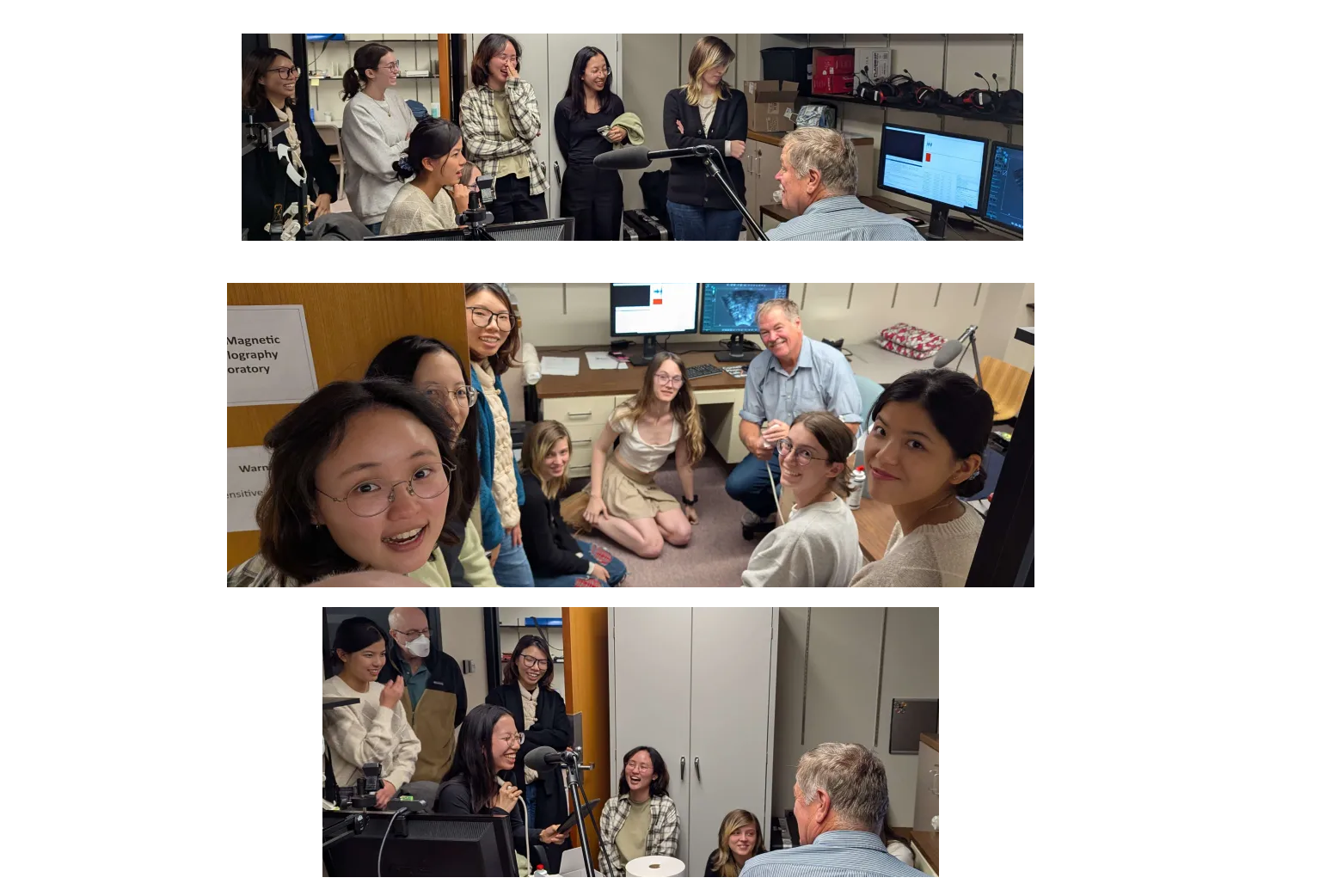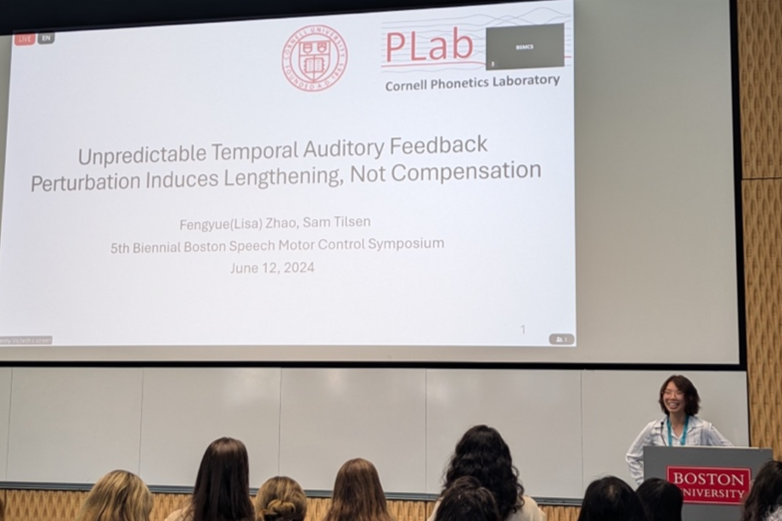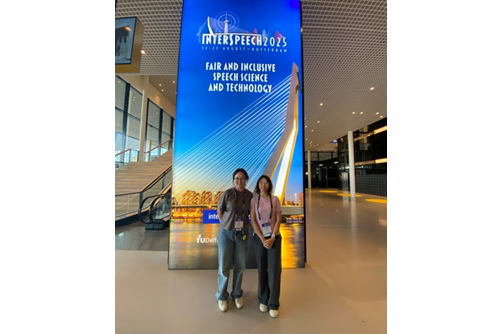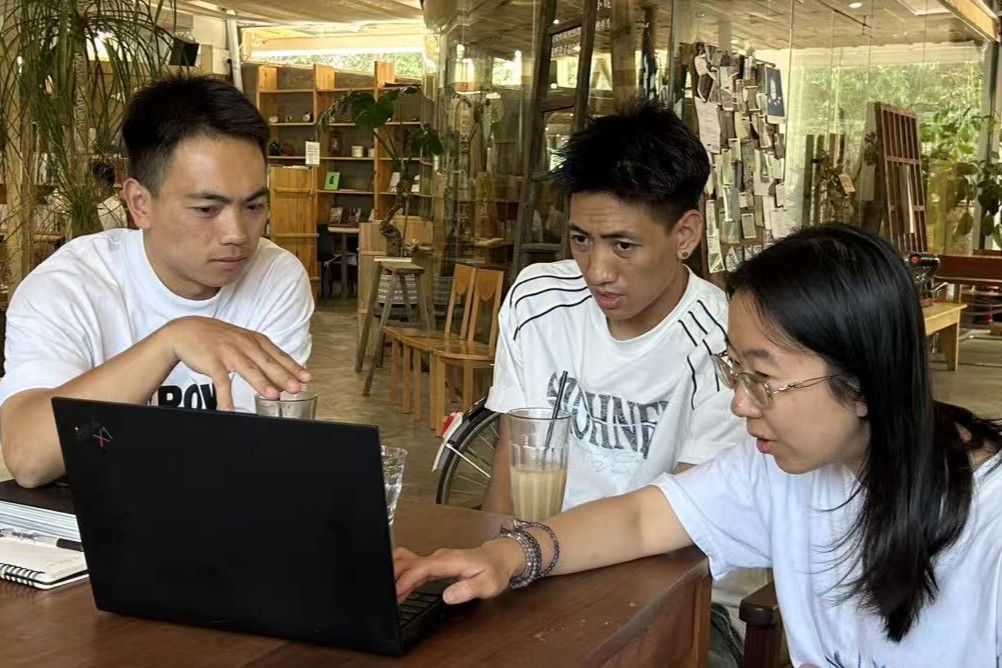News

Dr. Mark Tiede visited the Phonetics Lab for a two-day workshop on ultrasonic imaging
On October 9 & 10, 2025, Dr. Mark Tiede from the Yale School of Medicine conducted an intensive two-day workshop on ultrasonic imaging techniques at the Phonetics Laboratory. The workshop, which combined theoretical instruction with hands-on experimentation, introduced participants to the practical aspects of imaging the human vocal apparatus in real-time.
The workshop's first day began in the Ultrasound Lab with comprehensive coverage of fundamental scanning parameters, including depth of field, sector angle, and frequency settings. Dr. Tiede demonstrated how these elements influence image quality and frame rates while addressing common challenges such as hyoid and mandibular shadowing.
The second day focused on more specialized applications. Topics included probe stabilization techniques using the ALPHUS system, co-collection of ultrasound data with intraoral EMA, and transverse laryngeal imaging for studying devoicing gestures. The workshop concluded with a pilot experiment in which workshop participants could see their own vocal fold vibrations in real time.
Everyone had fun and learned quite a bit over the two days, and a number of students will be applying Dr. Tiede's information to their own Phonetics lab ultrasonic imaging experiments in the coming months.
5th December 2025

Fengyue (Lisa) Zhao presents at BSMCS 2025
Phonetics Lab Ph.D. candidate Fengyue (Lisa) Zhao presented her ongoing research at BSMCS 2025 (the 5th Biennial Boston Speech Motor Control Symposium), held in Boston, Massachusetts from June 12 to June 13, 2025.
Fengyue (Lisa) presented research she conducted with Dr. Sam Tilsen - the paper title was: "Unpredictable Temporal Auditory Feedback Perturbation Induces Lengthening, Not Compensation"
26th August 2025

Chloe Kwon & Fengyue (Lisa) Zhao present at Interspeech 2025
Phonetics Lab Ph.D. candidates Chloe Kwon and Fengyue (Lisa) Zhao presented their ongoing research at Interspeech 2025, held in Rotterdam, The Netherlands from August 17 to August 21, 2025.
Chloe Kwon presented her paper entitled “Speaker-specific Patterns of Phonetic Covariation in Korean Word-medial Stops and the Role of Phonological and Morphological Contexts”. The paper can be found here: https://www.isca-archive.org/interspeech_2025/kwon25b_interspeech.html.
Fengyue (Lisa) presented a paper on research she conducted with Dr. Jennifer Kuo - the paper was titled: "The Role of Contextual Variation in Learning Cantonese Tones from Naturalistic Speech". The paper can be found here: https://www.isca-archive.org/interspeech_2025/zhao25j_interspeech.html.
26th August 2025

Phonetics Lab Ph.D. candidate Yao Zhang completes second round of field research on the Chinese Yi language
This Summer Phonetics Lab Ph.D. candidate Yao Zhang conducted her second round of fieldwork in China's Sichuan and Yunnan provinces, where she worked with native speakers of the Yi language.
The Yi language is Tibeto-Burmese language that shares the same linguistic ancestor as modern Chinese. Spoken only in China, Yi is no longer linguistically related to any Mandarin dialect, and Yao has been studying how Yi interacts with local Mandarin.
Yao's research focused on tone systems and the loanword adaptations in different Yi dialects, and her fieldwork gathered language recordings from native Yi speakers. A preliminary phonetic analysis of those recordings shows that:
-Tone adaptation patterns in Nuosu Yi vary with speakers' bilingual proficiency, which correlates strongly with generation and education level.
-Older speakers in their 60s produced patterns that align with those generalized from corpus data
-Younger speakers in their 20s showed a marked preference for the innovative use of the derivative tone 4
This generational contrast highlights how language contact and bilingualism shape phonological adaptation in contemporary Yi communities. Yao plans to further study this phenomenon when she returns to China in September for additional field research.
22nd August 2025
